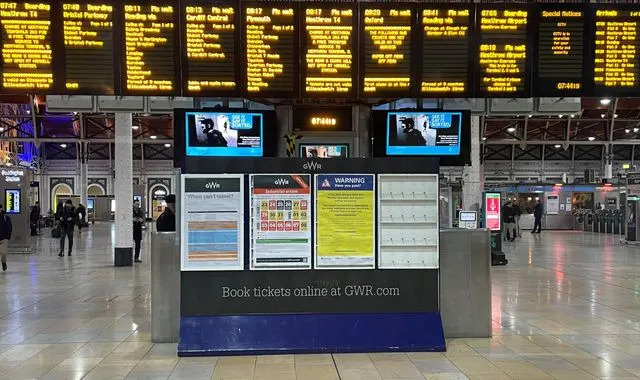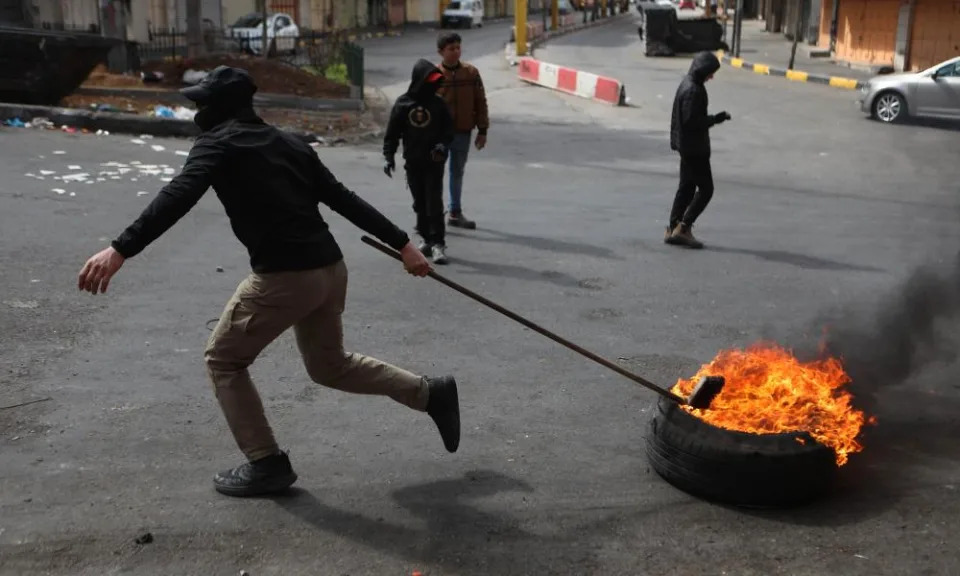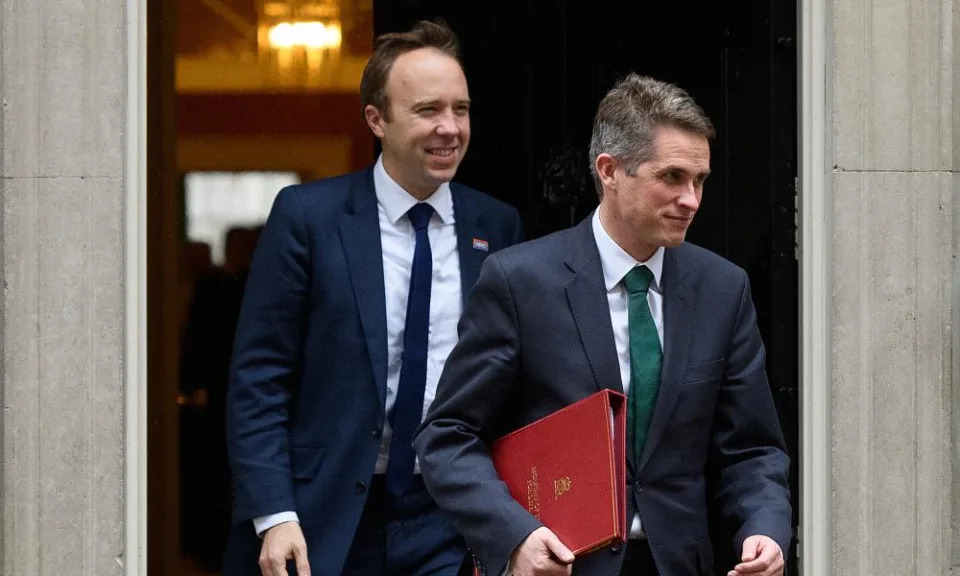LUCIEN BRUGGEMAN
Thu, March 9, 2023
Federal regulators are looking into a previously unreported incident involving Norfolk Southern potentially mishandling a conductor's concern on a train carrying hazardous material just weeks after a similar defect precipitated the derailment in East Palestine, Ohio.
According to a complaint obtained by ABC News, on the morning of Feb. 27, a Norfolk Southern train was lurching through Stoneville, North Carolina, when a safety official manning a hot-box detector desk in Atlanta radioed the crew to alert them that car number 32 was "trending hot," but not hot enough to trigger an alarm, and that the nearly two-mile train should proceed.
The conductor of the train checked his manifest and made a startling discovery: Car 32 was carrying ethanol, and five cars away, another was carrying propane. Both were labeled as "dangerous" on the train's manifest, according to the complaint, which was filed with the Federal Railroad Administration.
MORE: NTSB to open special investigation into Norfolk Southern following recent derailments
The complaint alleges that the conductor, now concerned that the "trending hot" warning could lead to an overheated wheel, radioed the desk back and suggested that they stop the train and inspect it. But the dispatcher overruled the crew and urged them onward.
Meanwhile, a maintenance worker in the train's vicinity allegedly overheard the radio chatter and offered to observe the train as it passed by. The complaint states that when the worker reported that he hadn't witnessed any smoke, the crew was told to keep going some 40 miles south to Winston-Salem, North Carolina.
Crew members were "shocked," according to the complaint. To continue into a heavily populated area after being notified that a car carrying hazardous materials was "trending hot" could potentially pose a profound threat not only to the crew, but to adjacent communities, crew members feared.
Ultimately, the train was able to complete its trip without further incident. But the Federal Railroad Administration is now looking into the previously unreported Feb. 27 incident as part of a broader "safety assessment" of Norfolk Southern, a spokesperson confirmed. The agency said in a press release this week that its assessment would scrutinize "operational control center procedures and dispatcher training," among other things.
A spokesperson for Norfolk Southern did not immediately respond to a request for comment on the record.

PHOTO: Workers continue to clean up remaining tank cars, Feb. 21, 2023, in East Palestine, Ohio, following the Feb. 3, Norfolk Southern freight train derailment. (Matt Freed/AP, FILE)
The reported incident on Feb. 27 raises fresh safety and accountability concerns regarding Norfolk Southern and the rail industry at large, three weeks after a wheel bearing overheated on a Norfolk Southern train carrying hazardous materials through East Palestine, derailing the train and causing an environmental crisis for nearby residents.
Over the past two decades, major rail carriers and trade groups have spent more than $650 million lobbying in Washington, often advocating against stricter government oversight of its safety procedures, according to the federal watchdog OpenSecrets.
In the wake of the East Palestine derailment, a bipartisan group of lawmakers led by Ohio Sens. Sherrod Brown, a Democrat, and J.D. Vance, a Republican, introduced legislation that would tighten government-backed safety requirements for trains carrying hazardous materials.
But some Senate Republicans have balked at the bill, leaving its fate in question. Sen. John Thune, R-S.D., has said that "an immediate quick response heavy on regulation needs to be thoughtful and targeted."
Norfolk Southern, for its part, has already taken steps to self-regulate. Earlier this week, CEO Alan Shaw laid out a six-point plan to "immediately enhance the safety of its operations," the company said. The initiative will improve its defect detector network, pilot next-generation hot bearing detectors, and generally support a more stringent safety culture, according to officials.
MORE: NTSB on East Palestine toxic train derailment: '100% preventable'
On Wednesday, the Association of American Railroads, a trade group representing major freight railroad companies, announced its own list of new measures, including a commitment "to stopping trains and inspecting bearings whenever the temperature reading from a [hot bearing detector] exceeds 170° above ambient temperature" -- a lower threshold than previously required.
But federal regulators aren't waiting around. In addition to the Federal Railroad Administration safety assessment, the National Transportation and Security Board has taken the extraordinary step of opening a special investigation into Norfolk Southern.
The agency said Tuesday it would scrutinize the company's "organization and safety culture" after a series of incidents, including the derailment in East Palestine and another derailment in Springfield, Ohio, earlier this month. A press release did not list the reported Feb. 27 incident in North Carolina.
"The NTSB will conduct an in-depth investigation into the safety practices and culture of the company," the agency said in a statement. "At the same time, the company should not wait to improve safety and the NTSB urges it to do so immediately."
Rail unions are also pressing for more government oversight. After the death of a Norfolk Southern conductor earlier this week near Cleveland, Eddie Hall, president of the Brotherhood of Locomotive Engineers and Trainmen, called for "significant improvements in rail safety for both workers and the public."
MORE: East Palestine derailment: Timeline of key events in toxic train disaster
"All railroad accidents are avoidable," Hall said.
Shaw, the Norfolk Southern CEO, said in a statement Tuesday that Norfolk Southern would "cooperate fully" with the NTSB and continue to find new solutions to improve the company's safety practices.
"We are going to invest more in safety," Shaw said. "This is not who we are, it is not acceptable, and it will not continue."
Shaw is scheduled to testify Thursday on Capitol Hill before the U.S. Senate Environment and Public Works Committee.

















